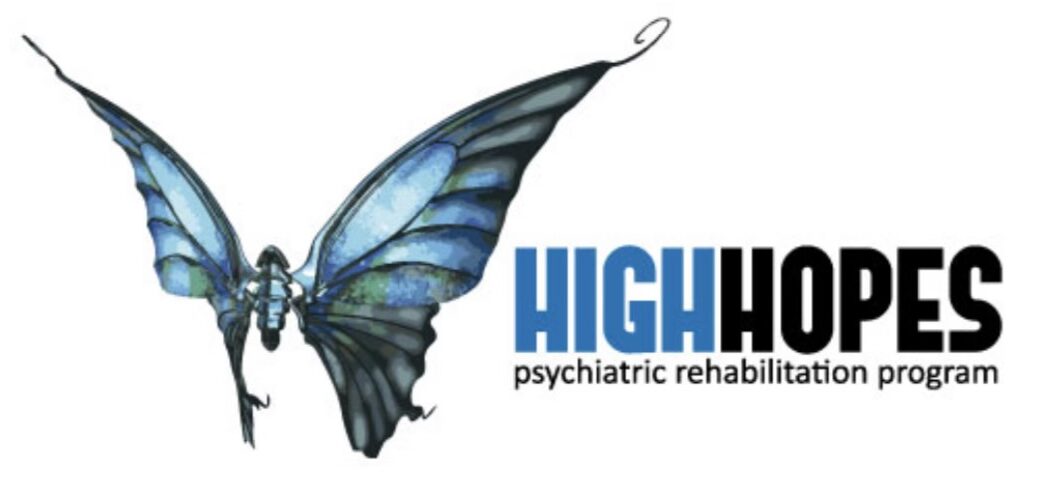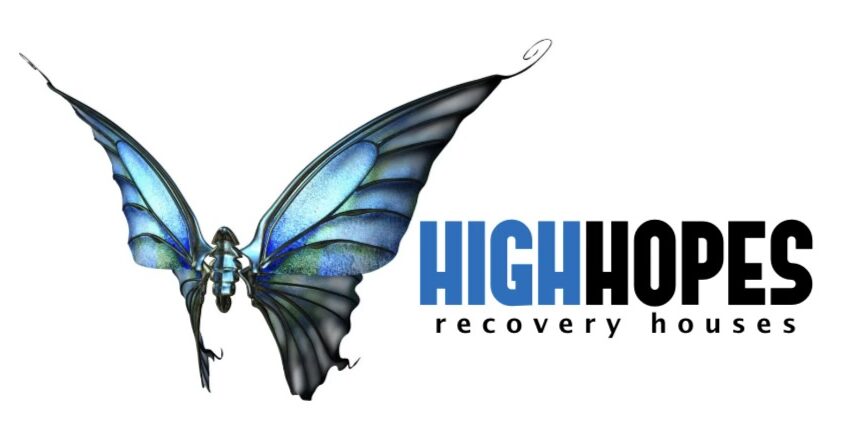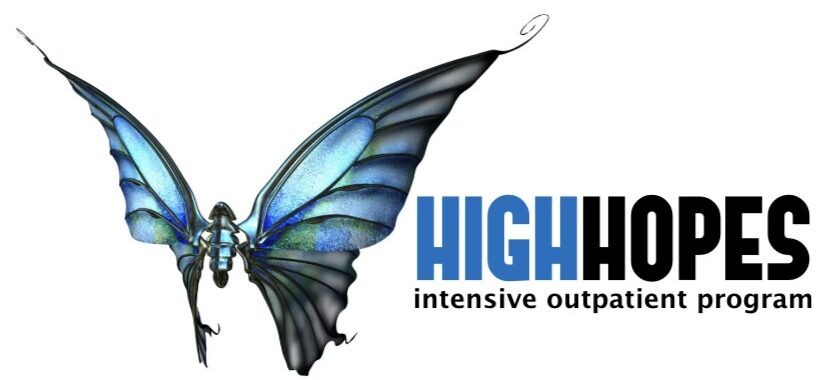Our Services

HIGH HOPES PRP (Psychiatric Rehabilitation Program):
The specific objectives of High Hopes’ Psychiatric Rehabilitation Program (PRP)- are to make people who are affected by mental disorders recover from their illness, being inclusive and feel equality with others and have services received to grow and change their status in society. Mental Health Programs such as PRP for adults/minors promote awareness about mental health issues, independence, and choice, emphasize human rights, inform public policy, achieve equity for mental health care comparable to other health care, and reduce stigma and discrimination against those with mental illnesses besides gaining employment in an in integrated system for independence. Clients are referred by a mental health professional and each client must actively participate in mental health to be eligible and continue with PRP services.
High Hopes intent is to promote the development and implementation of effective program to enhance healthy psychological development of young minds and reduce mental health barriers to mental stability. The overarching goal of High Hopes is to offer services that reduce barriers to independence, learning, protection of rights and choice and enhance healthy psychological development of people affected by mental stress and disorders.
Who are the beneficiaries of PRP?
The people served under PRP include adults/children that have deteriorating mental and emotional well-being. They also include individuals with dual diagnosis of Developmental Disability and Mental Illness. These individuals face the threats of persistent thoughts of suicide, persistent feelings of hopelessness and despair, feelings of anxiety and nervousness; sleeplessness; difficulty in concentrating; and increased use of drinking and smoking. They have lack of appetite or excessive eating, difficulty in making decisions, academic issues, behavioral problems and suffer withdrawals from the society. These are people with hypersensitivity, panic, odd behaviors and those who hear voices.
Program Goals:
The overall goal of High Hopes PRP is to increase the independent living through the individualized rehabilitation plan. Specific areas of focus may include:
Program Objectives:
High Hopes PRP’s seeks to achieve the following specific objectives:
Screening and Intake Assessment: A screening and intake process is completed within 5 workdays of the initial referral. The strengths, needs, abilities, and preferences of each client are identified explicitly for integration within an individual plan of services.
Individual Rehabilitation Planning: An Individual Rehabilitation Plan (IRP) is developed with each client within the first 5 workdays after the initial screening and intake assessment. The client/parent are full participants in the rehabilitation planning and goals. Objectives are based on individual needs, strengths, abilities, and preferences. Clients assist in the goals that are created for them, and the client has open access to the individual plan upon request.

HIGH HOPES RESIDENTIAL HOUSING
The newest service provided by High Hopes. LLC, is a supportive housing that helps the recovering addict regain their independence. High Hopes provides care and support to individuals recovering from addiction, coping with mental health issues, and others who are transitioning to independence. High Hopes is for serious and dedicated individuals who will be committed to rebuilding, restarting, and one day becoming independent. At our facility residents will be treated with dignity and esteem they deserve. You must be willing to admit that “You are not responsible for your disease but, you are responsible for yourrecovery.” When the resident arrives, there will be a contracted agreement signed between the resident and High Hopes. There are many rules and regulations for the resident to abide by, and to reassure all the residents that their sobriety will not be compromised, one must agree and sign the contract or admission will be rejected.
Through our Residential Housing Project, individuals who have experienced recent psychiatric hospitalization or relapse will receive the support they need from our trained and dedicated staff to continue their journey toward a successful recovery. Also, a representative can be appointed to assist with any legal matters, along with a detailed summary of what our program offers and how we can assist you in your recovery. A detailed assessment will be made of each potential resident, and an individual treatment plan will then be formatted to fit their needs. WIR offers a variety of programs; Relapse Prevention, Anger Management, Self Esteem, Parenting Classes, Job Readiness, Alternatives to Violence, Men’s & Women’s Rap, as well as NA/AA.
HOW OUR PROGRAM WORKS:
ENTRY LEVEL/BLACKOUT LEVEL: A four-week period during which the new applicant may only leave the property with a senior resident (escort) to attend 12-step meetings (requirements are 90 meetings in 90 days), doctor appointments, mental health therapy (all residents are required to participate in mental health services), IOP, (all mandatory) urinalysis/probation appointment or a court hearing. During entry/blackout level residents may leave the property for no other reasons outside of the stated destinations during this time.
LEVEL ONE: A client is given level 1 status after they have successfully completed the Entry level with no sanctions and absolutely NO POSITIVE URINALYSIS. Level 1 clients are now considered RESIDENTS of High Hopes. All Level 1 residents must attend daily NA meetings, a 12-step home group and complete 30 days of restricted movement you are given 3 hours of free time daily after all IOP groups & NA meetings have been attended. Level one client may leave the property alone during their free time. Restricted moving scheduled hours are 1pm-8pm weekdays (ex. Client begins restricted movement @2pm- return time @5pm), and 4pm-10pm on the weekends unless you are attending a program outing. (Times can be altered w/ permission from staff)
LEVEL TWO: Level two is given to residents if they meet level one requirement for 30 days, are actively participating in High Hopes treatment programs and have absolutely NO POSITIVE URINALYSIS. Level two clients are required to “escort” when necessary. Level two clients have 10:00pm curfew weekdays, and a 12:00 A.M. curfew weekends and periodic overnight and weekend passes.
TRANSITIONAL LEVEL: Transition level is given by upper management after clients meet all of Level 2 requirements for 60 days, are actively participating in High Hopes treatment, have absolutely NO POSITIVE URINALYSIS, and continue treatment in IOP groups/mental health services. Transitional level residents have a weekday curfew of midnight weekdays and 12:00am on the weekends with periodic overnights and weekend passes. This level is earned by the client and does not make the client exempt from any/all program rules and regulations.
HIGH HOPES MENTAL HEALTH SERVICES
At High Hopes our mission is to provide mental health support services, where the primary goal is to treat substance use, mental health, and co-occurring disorders, by creating a supportive community that fosters personal growth leading to self-accountability, so that individuals can achieve and sustain sobriety.
WHAT DOES “DUAL DIAGNOSIS” MEAN ?
A person with dual diagnosis has both a mental disorder and an alcohol or drug problem. These conditions occur together frequently. About half of people who have a mental disorder will also have a substance use disorder at some point in their lives and vice versa.
Many combinations of mental health and substance use disorders can occur. However, by far the most common combination is that of substance abuse and a mood and/or anxiety disorder. Studies have shown 50% or more of those with a drug or alcohol addiction also suffer from an emotional, psychological, or psychiatric disorder.
WHAT DOES MENTAL HEALTH TREATMENT MEAN?
Mental health treatment provides mental health services in primary healthcare involves diagnosing and treating people with mental disorders; putting in place strategies to prevent mental disorders and ensuring that primary healthcare workers can apply key psychosocial and behavioral science skills, for example, interviewing, counselling and interpersonal skills, in their day-to-day work in order to improve overall health outcomes in primary healthcare. In dual-diagnosis individuals, mental health treatment enhances the substance abuse issues and has been proven to be effective.
MENTAL HEALTH SERVICES PROVIDED
These include:
We at High Hopes feels that employment development is an important aspect of the recovery aspect. Clients are eligible for the employment development must be substance free for at least 90 days to ensure that there are no interruptions in their substance abuse treatment. Staying clean MUST come first.
We have developed a partnership with an employment development program called TYRO. The program emphasizes character building to ensure participants are ready to fully integrate back into society. The program also offers certification and occupational training for careers such as construction and urban landscaping.
In addition, our partnership with Goodwill industries allows our client to select a wide range of training classes, case management and career services all designed to help individuals find employment, improve their skill set or change career paths.
IMPORTANCE OF EMPLOYMENT IN RECOVERY
Employment is a significant accomplishment and can be a critical key to recovery and long-term sober living. Think about the stability in knowing where you are going to be every weekday, as opposed to floundering and maybe encountering triggers such as old friends and hangouts that may tempt you to use again.
Work provides the individual in recovery the ability to enhance self-esteem and to build confidence and self-worth by providing the person with the opportunity to invest in something in which she/he can be successful. Clients see working as equivalent to normalcy, being a part of society, doing what adults do, being “something” and “somebody”.
Work carries with it many benefits for the substance-abusing individual in recovery:

HIGH HOPES SUBSTANCE ABUSE IOP PROGRAM
Intensive Outpatient Treatment (also known as IOP for “Intensive Outpatient Program”) is a primary treatment program recommended in some circumstances by a clinical and medical assessment. IOP may be recommended for those who do not need medically supervised detox. IOP can also enable people in recovery to continue their recovery therapies following successful detox, on a part-time yet intensive schedule, designed to accommodate work and family life.
Start rebuilding your personal life and mending your important family ties right away, when you live at home and participate in intensive outpatient treatment. With High Hopes Intensive Outpatient Treatment program, you are able to establish a foundation for long term recovery support in your local community right from the start of your treatment, instead of waiting until you return from living away in a rehab center.
At High Hopes Intensive Outpatient Program, you receive services primarily through group therapy, but are also assigned or referred for an individual therapist you will meet with on a weekly basis while in treatment. Groups are small and generally do not exceed 15 people, allowing for a safe environment.
Many different areas and topics are covered in the IOP. Everyone is introduced to the following areas while in the IOP at High Hopes, LLC:
Q: Who is eligible for the High Hopes Intensive Outpatient Program?
High Hopes Intensive Outpatient Program (IOP) is designed for people who are struggling with problems associated with addictions, substance use and abuse, or the co-occurring disorders associated with substance use.
Eligibility for the IOP is determined by a mandatory clinical/medical assessment, which is conducted at our facility as part of the admissions process. The intensive outpatient treatment program is customized for each person, guided by the initial assessment, and follow up.